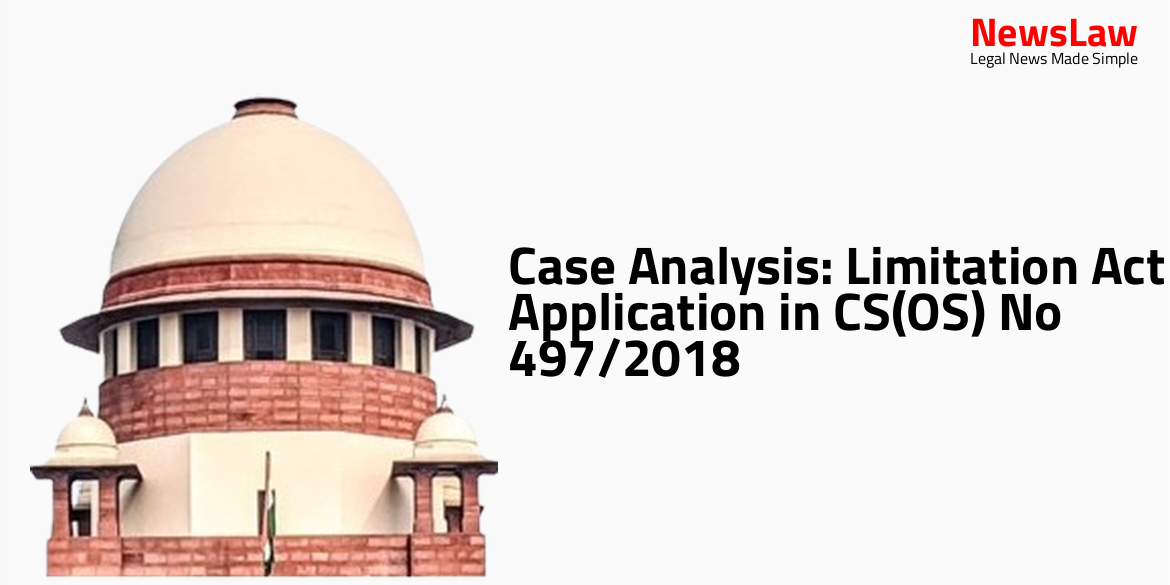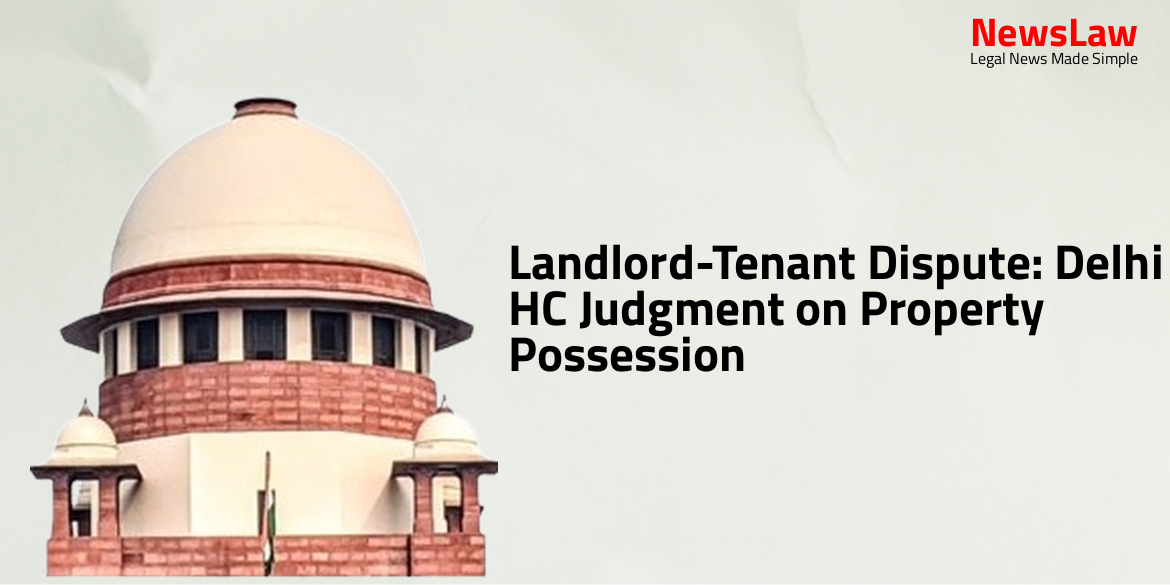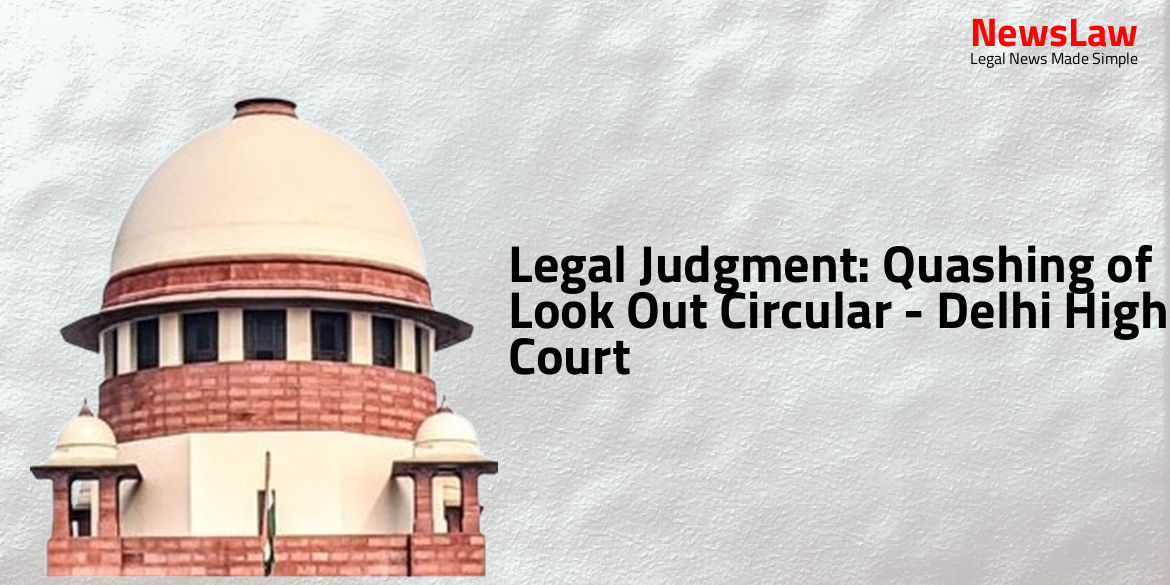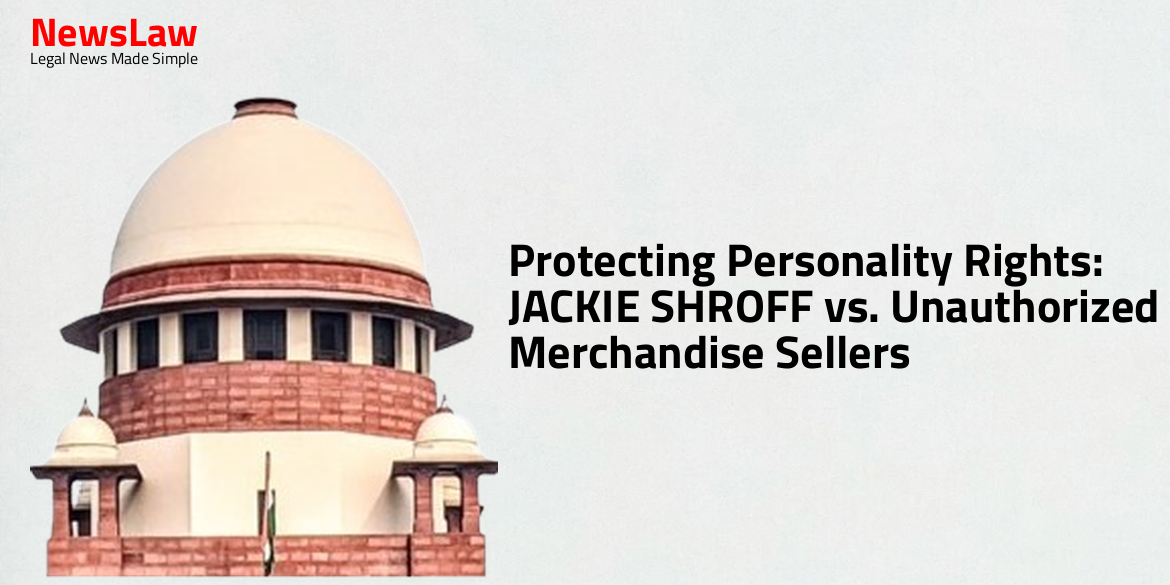Exploring the intricate legal aspects of the Limitation Act in the case of CS(OS) No 497/2018, where the application of TDS deposits and payments on account of debt were pivotal. Delving into the findings and implications of the Court’s decision on the issue of limitation. Stay tuned for a comprehensive understanding of the legal nuances involved in this case.
Facts
- Original Names were parties to the suit.
- The Court passed an order in the case with the number CS(OS) No 497/2018.
- The Court’s finding on the issue of limitation was considered by the learned Single Judge.
- The Court’s finding on the issue of limitation was partially passed.
Arguments
- The Appellant challenges the findings of the learned Single Judge regarding the issue of limitation.
- The TDS certificate relied upon by the learned Single Judge did not specifically pertain to the transaction in question according to the Appellant.
- The certificate reflected five independent deposits towards interest by the Appellant in favor of the Respondent.
- The Appellant did not provide details of the other independent transactions between the parties in the application for leave to defend.
- The issue of limitation should be left open for determination after the trial of the suit filed by the Respondent.
- The Appellant regularly deducted TDS at the rate of 10% on the interest accrued and deposited it to the government.
- The time for repayment was extended till 31 March, 2015 at the request of the Appellant.
- The suit was filed on 20.09.2018 based on a Deed of Cancellation dated 20 April, 2013.
- The Appellant paid Rs. 1 crore on 27 March, 2015 as an ‘on account’ payment.
- The Appellant lastly deposited TDS amount of Rs. 13,96,886 on 30 September, 2015 but did not pay the interest.
- The TDS deposited by the Appellant is disputed by the Plaintiff to extend the period of limitation.
- Section 19 of the Limitation Act, 1963 regarding the effect of payment on account of debt or interest on legacy was referred to by the parties.
- The Appellant did not furnish details of the alleged recovery as per Order XXXVII of CPC.
- The Appellant undertook to refund the amount of Rs. 12 crores with 24% per annum interest to the Plaintiff as per the Deed of Cancellation.
Analysis
- The plaintiff needs to prove that the payment on account of the debt was made by the defendant before the expiration of the prescribed period.
- The payment should have been acknowledged by some term of writing in the handwriting of the payer or signed by the payer.
- Explanation to Section 194A (1) states that crediting income by way of interest in the books of account of the person liable to pay such income is deemed to be a credit of such income to the payee’s account.
- The Appellant did not challenge the legal findings regarding the effect of TDS deposit on limitation period under Section 19 of the Act of 1963.
- The Appellant tried to dispute a factual issue about the payment reflected in the TDS certificate, claiming it was for a separate transaction.
- The Court rejected the Appellant’s contention as it was not based on the pleadings made in the application seeking leave to defend.
- The payment made against the Cancellation Deed extended the limitation period as per Section 19 of the Limitation Act.
- The TDS deposit by the defendant satisfied the second condition of Section 19 of the Limitation Act.
- Although TDS deposit may not be an acknowledgment of debt, it constitutes a payment by the defendant towards the plaintiff, triggering a fresh period of limitation from the date of deposit.
- Section 198 of the Income Tax Act deems all deducted sums to be income received by the assessee for computing income.
- The deposit of TDS made on 30.09.2015 was deemed as income received by the plaintiff as per Section 198 of the Income Tax Act.
- The dismissal of the appeal does not impact the above analysis.
- In Baranagore Jute Factory PLC. Mazadoor Sangh (BMS) case, the Supreme Court stated that the TDS amount deposited was considered as compensation by NHAI.
- The Court in M/s Utility Powertech Limited case clarified that deduction of TDS does not imply admission of liability.
- Similar rulings were made in Actal case and S.P. Brothers case where TDS deduction was not seen as an admission of liability.
- However, these judgments do not apply to the current case.
- The issue of limitation cannot be left open to be adjudicated at the final disposal as pleaded by the Appellant.
- No plea regarding limitation was raised before the learned Single Judge.
- The conclusion drawn by the learned Single Judge in the impugned judgment was based on the TDS certificate and is supported by both the material on record and the law.
Decision
- The present appeal has been dismissed along with pending applications.
Case Title: SAMYAK PROJECTS PRIVATE LIMITED Vs. ANSAL HOUSING LIMITED (2024:DHC:4064-DB)
Case Number: FAO(OS)-77/2023



